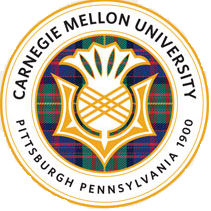Course Information
Semester :: Spring 2015
Number :: 08-840 (PhD, M.S.), 08-540 (M.S, Undergrads)
Time :: TR Noon - 1:20pm Tuesday/Thursday)
Classroom :: WEAN 5415
Instructor :: Yuvraj Agarwal
Units :: 12 Units (08-840), 9 Units (08-540)
Office Hours :: Tuesdays 2pm - 3pm, WEAN 5313. Or By Appointment
Syllabus/Topics :: Download Syllabus.pdf
Number :: 08-840 (PhD, M.S.), 08-540 (M.S, Undergrads)
Time :: TR Noon - 1:20pm Tuesday/Thursday)
Classroom :: WEAN 5415
Instructor :: Yuvraj Agarwal
Units :: 12 Units (08-840), 9 Units (08-540)
Office Hours :: Tuesdays 2pm - 3pm, WEAN 5313. Or By Appointment
Syllabus/Topics :: Download Syllabus.pdf
Course Description
Energy is a key societal resource. However, our energy usage is rising at an alarming rate and therefore it has become critical to manage its consumption more efficiently for long term sustainability. This course introduces students to the exciting area of "Green Computing", and is organizationally divided into two tracks. The first track is "Energy-Efficient Computing", which considers the state of the art techniques for improving the energy efficiency of mobile devices, to laptop and desktop class computers and finally to data centers. We will cover energy efficiency across the hardware/software stack, starting from the individual components like processors and radio interfaces to system level architectures and optimizations. The second track is "Applying Computing towards Sustainability", covering topics that leverage computing to reduce the energy footprint of our society. In particular, we will focus on Smart Buildings and the Smart Grid, covering topics such as sensing, modeling and controlling the energy usage of buildings, new operating systems or software stacks for the smart infrastructure, as well as the privacy and security issues with the new Internet of Things (IoT). The goal of this course is to help students acquire the knowledge and skills needed to do research in this space of "Green Computing". Although the course is listed within SCS, it should be of interest to students in several departments, including ECE, MechE, CEE, EPP and Architecture.
Course Logistics: This is a graduate level course and will comprise of both lectures and discussing research papers on the recent advances in Green Computing. The course will require all students to do weekly reading assignments and each student will lead the dicussion of a paper 2-3 times a semster. There will also be a semester long (group) project on a topic related to the class. The instructor will provide some project ideas, and students are free to think about and discuss their own ideas on Green Computing related topics for the project. Note that this course is being offered as a 12-unit section (08-840) and 9-unit (08-540) sections. The 12-unit section is meant for PhD and Masters level students, and they are expected to work on a substantial team project with a polished research-style paper and presentation at the end of the semster. Selected projects may even be considered for publication. The 9-Unit section (08-540) is meant for Juniors/Senior level undergraduate students and Masters level students. These students can choose a less demanding project or do individual summary papers with a presentation on a mutually agreeable topic related to the course. The lectures taught and the other course requirements remain the same for all the sections. Advanced undergraduate students taking the class should talk to the instructor after the first class.
Pre-requistes: The course is open to all graduate students, and advanced undergraduates, with a technical background. Some programming experience will be needed to work on the project. No actual pre-requisites but undergraduate coursework in Electrical Engineering or Computer Science or a related field will generally be helpful. If in doubt, send an email and come to the first day of class to talk to the instructor.
Course Logistics: This is a graduate level course and will comprise of both lectures and discussing research papers on the recent advances in Green Computing. The course will require all students to do weekly reading assignments and each student will lead the dicussion of a paper 2-3 times a semster. There will also be a semester long (group) project on a topic related to the class. The instructor will provide some project ideas, and students are free to think about and discuss their own ideas on Green Computing related topics for the project. Note that this course is being offered as a 12-unit section (08-840) and 9-unit (08-540) sections. The 12-unit section is meant for PhD and Masters level students, and they are expected to work on a substantial team project with a polished research-style paper and presentation at the end of the semster. Selected projects may even be considered for publication. The 9-Unit section (08-540) is meant for Juniors/Senior level undergraduate students and Masters level students. These students can choose a less demanding project or do individual summary papers with a presentation on a mutually agreeable topic related to the course. The lectures taught and the other course requirements remain the same for all the sections. Advanced undergraduate students taking the class should talk to the instructor after the first class.
Pre-requistes: The course is open to all graduate students, and advanced undergraduates, with a technical background. Some programming experience will be needed to work on the project. No actual pre-requisites but undergraduate coursework in Electrical Engineering or Computer Science or a related field will generally be helpful. If in doubt, send an email and come to the first day of class to talk to the instructor.
